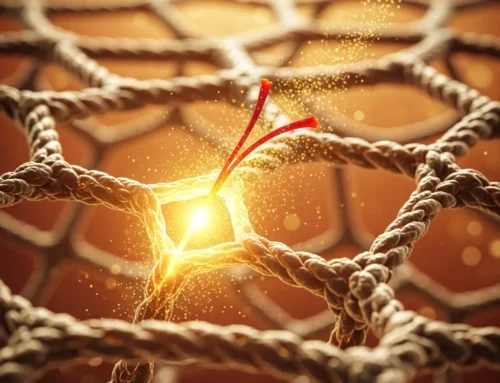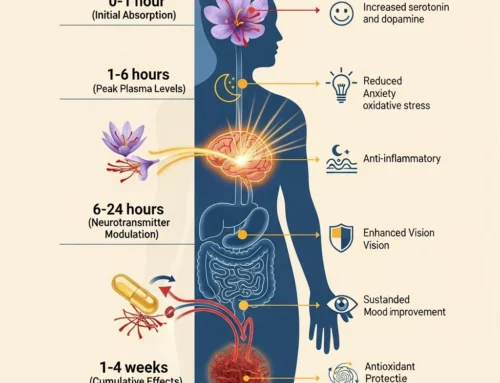 The Incredible Benefits of Saffron Vitamins
The Incredible Benefits of Saffron Vitamins
When we take a look at the ingredients list of saffron, we notice a large number of saffron vitamins and minerals, which are among the primary reasons behind its health benefits. In fact, when we say that saffron is beneficial for treating depression, we mean that it contains nutrients that can contribute to this property.
Some of the saffron vitamins and minerals include Vitamin B2, B3, B6, B9, A, and C. Additionally, saffron is rich in various minerals that can be highly beneficial for your body.
The Importance of Vitamins and Minerals in the Body
The vitamins and minerals in saffron are classified as micronutrients, meaning that our body only needs a small amount of them. These vitamins serve a variety of essential roles in our body, although only a few of them are widely recognized.
Many of the vitamins and minerals in saffron act as coenzymes for the body’s enzymes. Enzymes are catalysts that help facilitate bodily reactions, and without them, the body would quickly experience various disorders.
What Are the Key Benefits of Saffron Vitamins?
- Support metabolic reactions
- Facilitate growth and development
- Stimulate hormone secretion
- Affect tissues and bones
- Assist in digestive absorption
- Play a vital role in blood formation
The Role of Saffron Vitamins
The saffron vitamins are present in the red stigma and purple petals of the flower and can help fulfill part of the body’s daily requirement for these micronutrients. Below are some of the key saffron vitamins:
Folate
Folate is essential for blood formation, and a deficiency can lead to megaloblastic anemia. Symptoms of folate deficiency include fatigue, pale skin, weakness, and sleep disturbances. Folate is involved in many reactions in the body, including amino acid and nucleic acid metabolism.
Niacin
Niacin, or Vitamin B3, is another important saffron vitamin that plays a major role in metabolism and energy production. It is a cofactor for various enzymes, including oxidoreductases. A deficiency in niacin can lead to symptoms such as weakness, depression, weight loss, and poor concentration.
Pyridoxine
Pyridoxine, or Vitamin B6, is vital for the activation of several metabolic and structural enzymes in the body. A deficiency in B6 can result in serious health complications.
Riboflavin
Vitamin B2 is crucial for the body and is present in saffron. It is essential for metabolic reactions, especially for individuals who are frequently exposed to sunlight, as it can be broken down by UV rays.
Vitamin A
Retinol, a fat-soluble vitamin, is another saffron vitamin that plays a critical role in eye health. However, excessive intake of Vitamin A can lead to toxicity, but saffron provides it in moderate and safe amounts.
Vitamin C
Vitamin C in saffron is known for its antioxidant properties, boosting the immune system, aiding in collagen formation, and helping reduce cholesterol. It can also shorten the duration of colds and reduce the risk of stroke. The high concentration of Vitamin C in saffron enhances the effects of other antioxidants found in it.
The Mineral Content of Saffron and Its Benefits
The minerals found in saffron are another reason to include saffron in your daily diet. These minerals can help meet your body’s nutritional needs and improve bodily functions. For example, magnesium in saffron can improve bone formation, metabolism, and muscle and nerve function.
Selenium in saffron plays a crucial role in protein synthesis, while zinc can strengthen the immune system and promote wound healing.
Saffron Extract and Its Advantages
Many pharmaceutical and food companies extract saffron’s nutrients and sell them as saffron extract in pill or syrup form. While these supplements can be effective, consuming natural saffron is better because the extracted vitamins and minerals can degrade over time due to oxidation.
As biochemistry professors often say: it’s better to eat the actual food rather than relying on supplements that have been stored for long periods and have been altered chemically.
Which Minerals Are Found in Saffron?
Saffron contains essential minerals such as calcium, copper, iron, magnesium, phosphorus, selenium, zinc, and manganese, which all contribute to its health benefits.
By consuming saffron, you can benefit from its rich content of vitamins and minerals and meet a significant portion of your body’s micronutrient and antioxidant needs.
Saffron for Overall Health
Whether you’re seeking improved mood, better digestion, or enhanced immunity, saffron’s potent vitamins and minerals can help you lead a healthier life. This spice is not only an essential ingredient in many dishes but also a natural remedy with a variety of health benefits.







Get Social